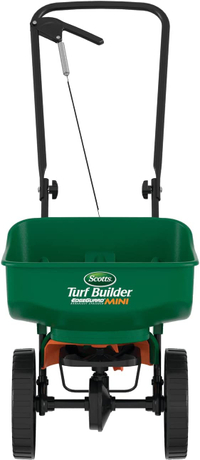Can you fertilize in the rain? Lawn care experts share their tips for best practice
The rain could be your best friend when it comes to fertilizing – just as long as there is not too much of it
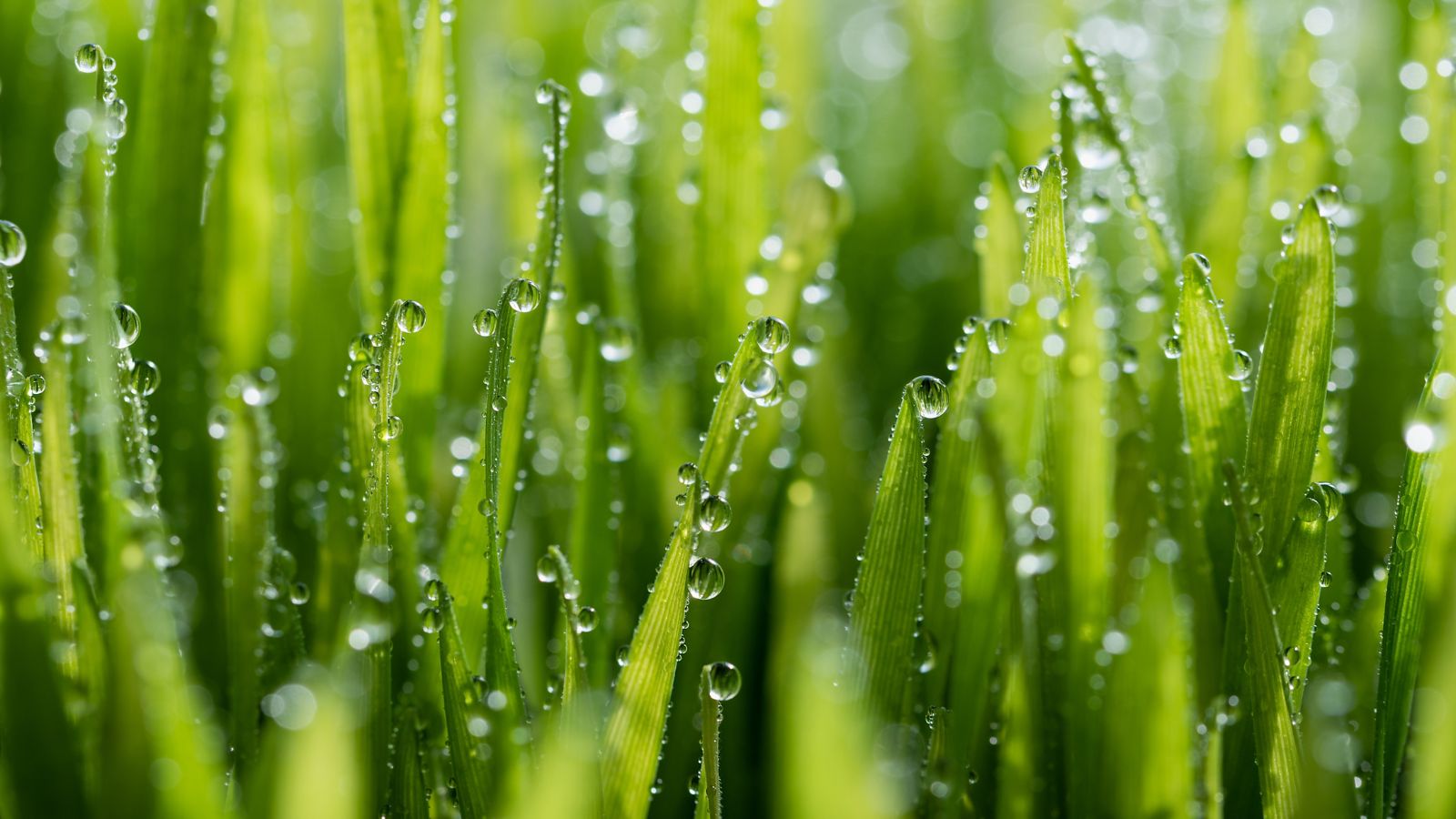

Getting out and gardening may not be the first thing we think to do when it is pouring down with rain outside, but lawn care experts suggest there could be some benefit to putting on our rain boots and tending to our grass.
If you know anything about fertilizing a lawn already, then you will know that most good fertilizers will need watering in for the best effect. The easiest and most sustainable way to do this is to allow the rain to do the work for you – but there are some caveats to this shortcut.
Here, lawn care and gardening experts have explained if you can fertilize in the rain, and how to know when the weather is right.
Fertilizing in the rain
Given that we usually fertilize a lawn in spring or fertilize a lawn in fall, we often have drizzly weather to contend with. So working with the rain, rather than against it, could be a welcome relief.
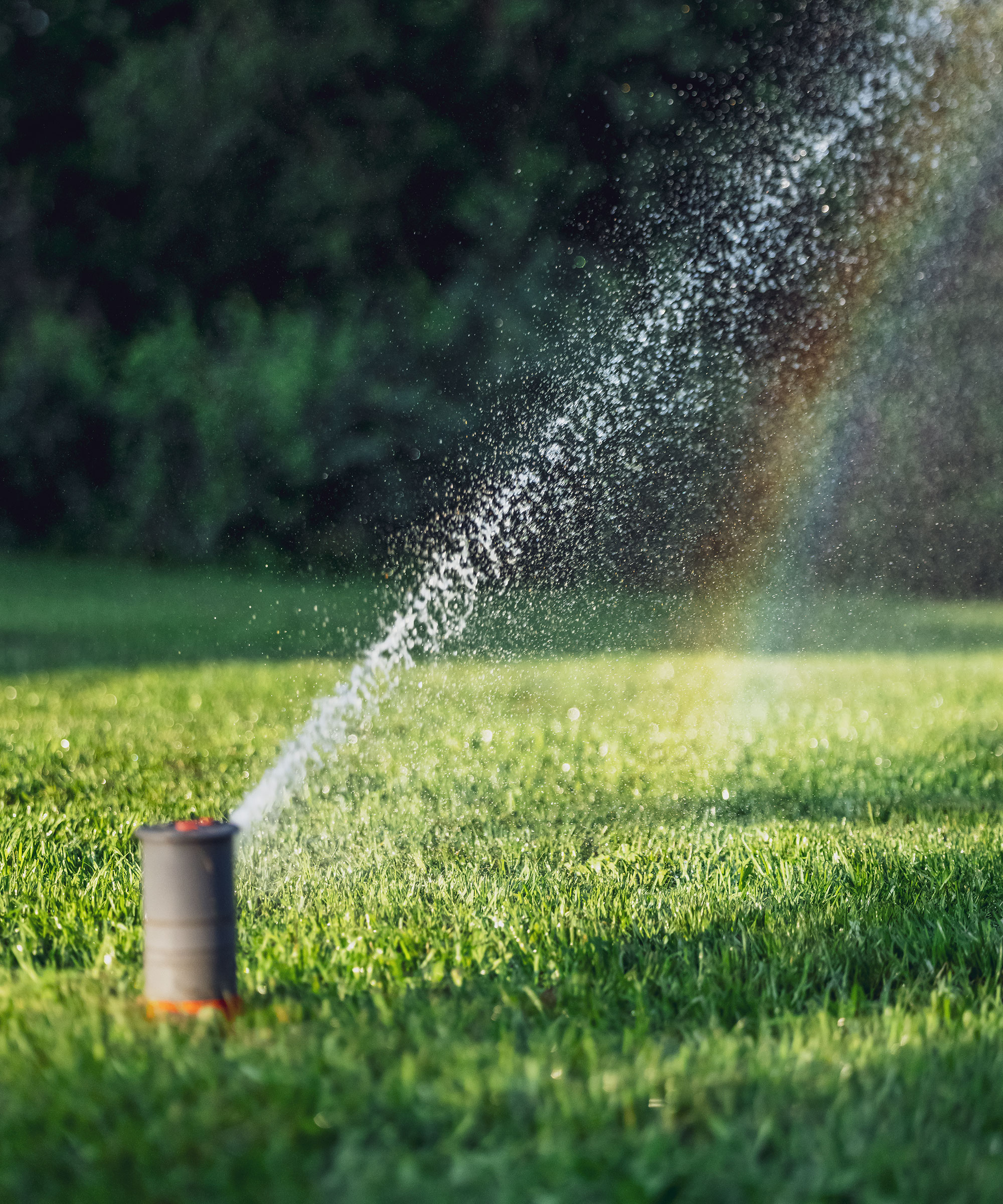
Working in the rain, or just before it, adds moisture to the soil that helps facilitate nutrient absorption by plants, ‘ensuring they receive the necessary nourishment for growth and development,’ explains Gene Caballero, lawn expert and co-founder of GreenPal. ‘Additionally, the dilution of the fertilizer in rainwater reduces the risk of burning or damaging plants due to over-fertilization.’
Working in this way can also be more efficient, as you don't have to manually water the fertilizer in with a hose – or even a watering can, saving you time, energy, and money.

Gene Caballero is the co-founder of GreenPal which has been described as Uber for lawn care. He has been in the landscaping business for over 25 years.
That being said, there are some important caveats to take note of when taking advantage of rain in your gardening tasks. The type of fertilizer you use, for instance, can make all the difference, says Kody Ketterling, lawn care expert and creator of K-It outdoor maintenance products. He would recommend using a solid, pellet fertilizer over a liquid fertilizer to ensure it is absorbed into the soil properly.
‘Liquid fertilizer needs to be left to dry on the plants and lawn, meaning imminent rain will wash it away or dilute it too much, at which point you may as well have not fertilized your lawn in the first place ‘ he warns. ‘The main advantage of fertilizing in the rain is that it starts the breakdown process of a dry fertilizer, a step that is redundant with a liquid format.’
What’s more, it is helpful to use a slow-release or controlled-release fertilizer to provide a steady supply of nutrients to the plants over time and apply it with the right technique, such as aerating a lawn before fertilizing and using a spreading tool to ensure even coverage, Gene Caballero, lawn expert advises. ‘This ensures that the nutrients are available when the plants need them, even if the rain is intermittent or it only lightly drizzles.’
Scotts Turf Spreader | Was $55.99, Now $47.97 at Amazon
This lawn spread is ideal for spreading fertilizer and lawn seed evenly across your yard, making for a perfect application without having to measure it all out yourself.
The disadvantages of fertilizing in the rain
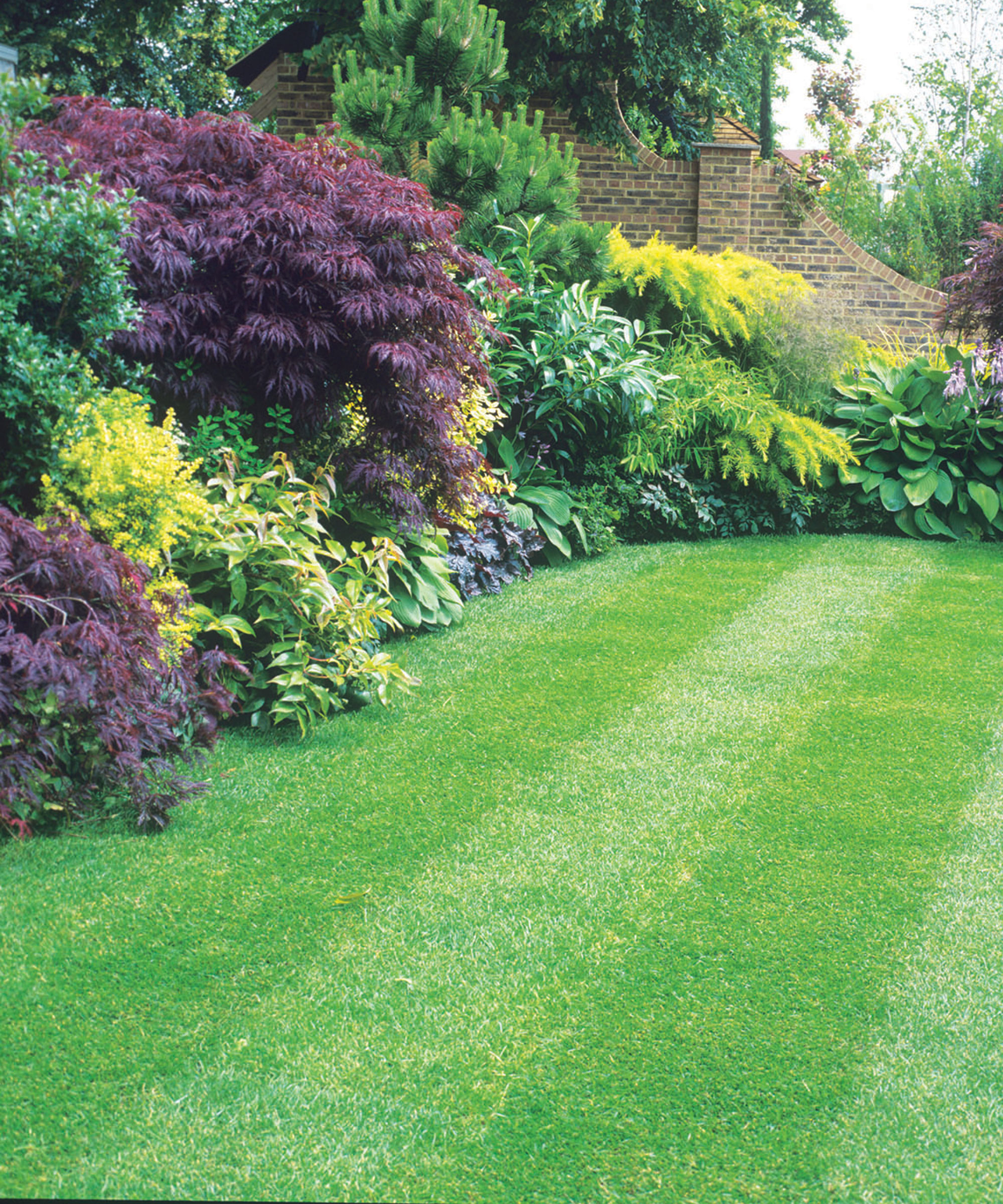
If you are usually meticulous with your yard care and fertilization, then relying on the rain may take away an element of control, leading to some accidental lawn care mistakes. For example, it is important that the rain is only mild or moderate, with heavy rains risking undoing your hard work, points out Janna Bradley, co-founder of Landscape Management Network.
‘You really need to avoid fertilizing your lawn prior to or after heavy rainfall. With so much water in your lawn, it can be nearly impossible for it to absorb the nutrients from your fertilizer.’ As a result, you need to be absolutely sure that the rain will be mild and that the wind will not pick up too much.
If you don’t fancy trying your hand at becoming a fortune teller, then it may be easier to wait for a period of dry weather and watering in the fertilizer yourself. ‘This will ensure that the fertilizer dissolves evenly, allowing for complete absorption in your lawn's roots, as well as preventing the fertilizer from burning your grass,’ Janna says.
Furthermore, this method is also not a great way to apply ‘weed and feed’ variations of fertilizers that are designed to kill weeds while nourishing grass. That is because these forms need to sit on top of the soil a little longer to ensure that the incorporated herbicide can do its job. For these fertilizers, it is best to apply them at least 24 hours before any rain, or watering it in yourself.
FAQs
What is the best temperature to fertilize your lawn?
Besides having the right weather forecast, it is a good idea to wait until your lawn has reached at least 55 degrees Fahrenheit before you start to lay down fertilizer. This is when the ground starts to let go of winter frosts and is more ready to accept nutrients, ready to help the grass grow.
When should you not fertilize grass?
There are a few times when it is best to leave your grass lawn alone and avoid fertilizing. This could be when the grass is dormant, as in winter or cold temperatures, when the ground is too hard, such as in drought, and when it is raining very heavily which could result in waterlogging, reducing the efficacy of the fertilizer.
All in all, fertilizing in the rain is a good idea for your garden if you have all of the controls right – from having dry fertilizer to being sure the rain won't be torrential. It can be a great way to save some time in your garden, especially during the transitional seasons, working with nature rather than against it.
Sign up to the Homes & Gardens newsletter
Design expertise in your inbox – from inspiring decorating ideas and beautiful celebrity homes to practical gardening advice and shopping round-ups.

Chiana has been at Homes & Gardens for two years and is our resident 'queen' of non-toxic living. She spends most of her time producing content for the Solved section of the website, helping readers get the most out of their homes through clever decluttering, cleaning, and tidying tips. She was named one of Fixr's top home improvement journalists in 2024.
-
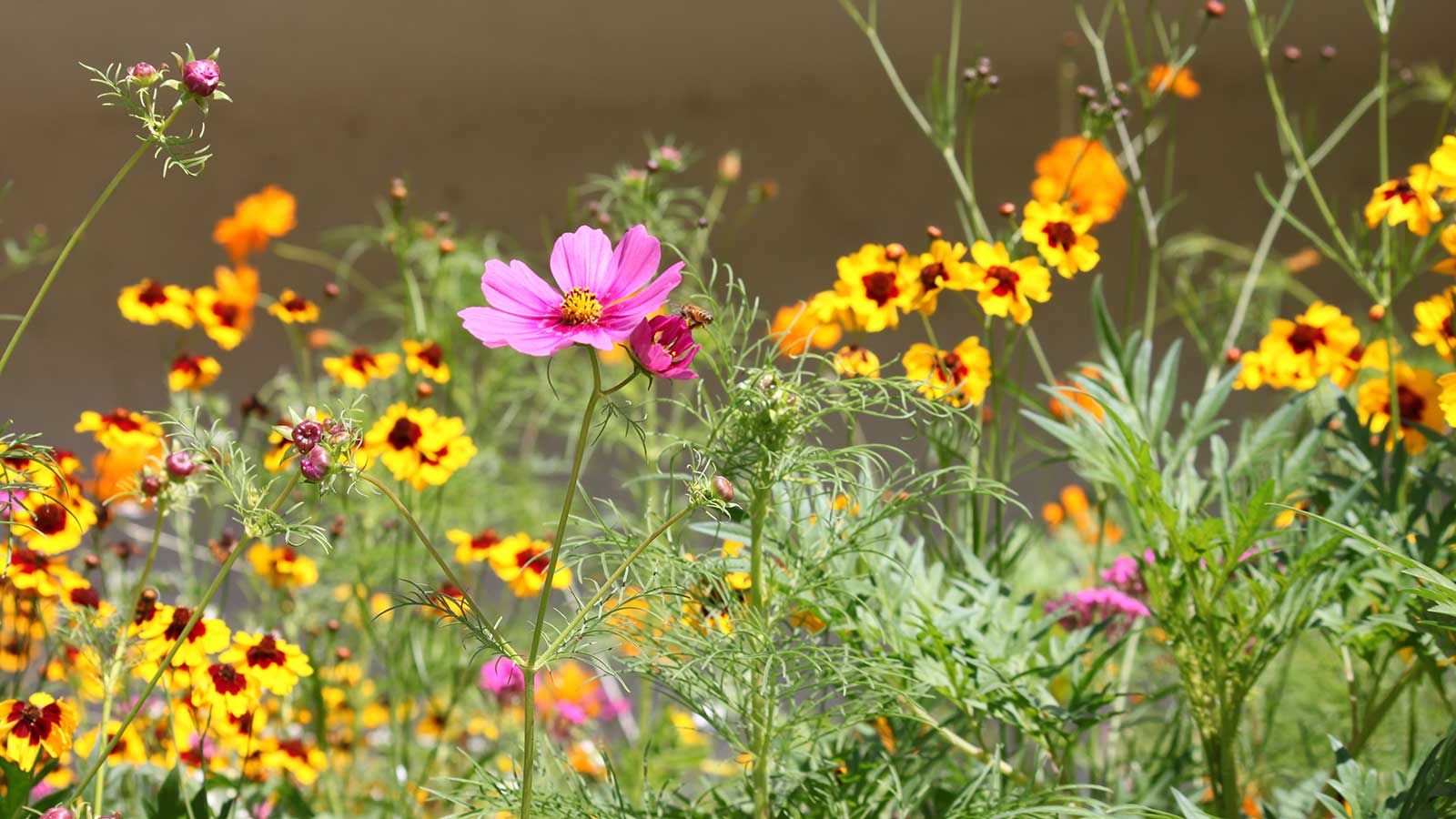 How to design a mini meadow in pots – and welcome birds, bees and butterflies to your urban wildlife garden this summer
How to design a mini meadow in pots – and welcome birds, bees and butterflies to your urban wildlife garden this summerExperts share advice on species recommendations, soil, and types of containers to use for meadow planting
By Holly Crossley
-
 I tried this glycerin hack to stop the mirror in my bathroom from fogging up – and it worked like magic
I tried this glycerin hack to stop the mirror in my bathroom from fogging up – and it worked like magicIt instantly fixed one of my biggest pet peeves
By Chiana Dickson
